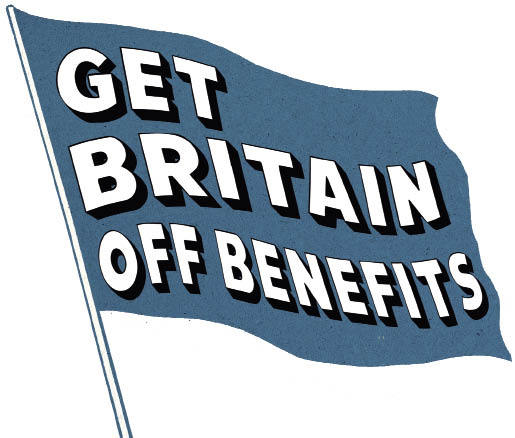Stephen Brien explains how Britain’s welfare system must change
Welfare dependency is one of the most pernicious problems facing modern Britain and its deprived communities. When William Beveridge was planning the welfare state, he spoke about the giant evil of idleness: not just a waste of economic potential, but of human potential too.
The tragedy is that his welfare system has gone on to incubate the very problem it was designed to eradicate. It was intended to support those who were unable to work, or for whom there were no jobs. But the benefits system now actively discourages people from taking a job, or working more hours. For millions, welfare dependency is now a way of life. This destruction of aspiration has never been morally acceptable. Moreover, it is now financially unaffordable.
To tackle this problem, we must ask: what is the root cause? Why did a million people spend all of the New Labour years on benefits of some kind? The answer, quite simply, is that we paid them to. If welfare pays more than work, why work? Welfare payments, augmented by housing benefits, represent a much more secure cash-flow than slogging it out on the minimum wage. Yet this traps claimants and robs them of the dignity of working. It deprives children of an employed role model. And the rest of society must shoulder the financial burden. What is remarkable, however, is that there are some simple reforms we can undertake to release them from this trap. Here are four.
Cut through the paperwork
Britain’s benefits system is dizzyingly complex. There are, in total, 52 different benefits available, with different payment rates, earnings disregards, withdrawal rates, capital limits, conditions and overlapping premiums. Right now, the government is unable to say how these all interact in the benefits market and how they discourage people from moving into the labour market. There is, for instance, a widely held (and partially justified) belief that taking a job puts your home at risk. Analysing these perverse incentives, in black-and-white and regularly, should be the first step towards combating them.
Make work pay
Benefits create barriers to employment. As soon as a claimant starts earning, their benefits are withdrawn – and erratically. Some even have their payments reduced by 90 pence for every extra pound of income they earn, so they simply don’t see the point in work. Government should look to steady the withdrawal of benefits from the employed. At the Centre for Social Justice we believe this can be achieved by ensuring that benefit reductions should be reduced by no more than 55 pence for every extra pound of earned income; that the threshold at which claimants have benefits withdrawn should be raised; and that the overlaps between benefits should be eliminated so they are not all taken away at the same time. Much of this can be achieved within a year, without primary legislation.
Rework the tax credits system
Tax credits are now paid according to a previous year’s earnings, and then reconciled through a claim for arrears. This doesn’t work. In the first place it does not account for the claimant’s immediate situation. In the second, it creates a vast paper-trail of claims and counter-claims between users and the Treasury. A neater solution would be to pay tax credits in full, and then withdraw them along with income tax. Even better, eligibility for tax credits should be dealt with by one department – Work and Pensions – rather than by the Treasury too.
Build a universal credits system
The system must be simplified and all of these changes could, with certain exceptions such as specific child benefit, be dealt with by just two credits: a universal work credit and a universal life credit. These would show a clear, financial reward for work. They could even be withdrawn, quickly and effectively, through the income tax system, in line with earnings.
In the end, reforming the benefits system will not, alone, be enough to tackle the evil of welfare dependency. The government will also need to make changes to how welfare providers are contracted, but these four, relatively simple steps can begin to transform Britain’s most deprived communities for the better. Over to you, Prime Minister.
Dr Stephen Brien is chairman of the Centre for Social Justice working group on economic dependency.






Comments